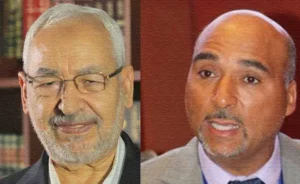In light of the ongoing systematic violations of human rights in Tunisia, the situation of political prisoner Sonia Dahmani reflects a living tragedy that highlights the repression and abuse faced by prisoners of conscience. Sonia, a lawyer and political activist, is subjected to harsh and inhumane detention conditions, with the aim of breaking her will and stripping her of her dignity.
Daily Oppression in Unbearable Detention Conditions
The testimony of Sonia’s sister indicates that her life in prison has turned into a series of daily torments. Sonia suffers from the bitter cold in an isolated cell that lacks the most basic necessities of a decent life. She does not have warm clothes to protect her from the cold, and cold water has become a daily weapon to torture her psychologically and physically. Her hands crack from the cold, and her fingers have become swollen and stiff, making her unable to perform the simplest daily tasks, such as cleaning her body or washing her clothes.
Deprivation of Basic Rights
Sonia was deprived of her most basic human rights, forced to forego personal hygiene, prevented from using hot water and cleaning materials to clean her body and clothes, and trapped in an unhealthy environment. These harsh conditions, which contribute to the spread of skin diseases, increased her psychological and physical suffering and contributed to the aggravation of her deteriorating condition day after day.
Systematic Punishment
Sonia’s cell has become a “prison within a prison”, where she lives in complete isolation from the outside world. Everything in her detention conditions seems specifically designed to break her psychologically: the food provided is cold and inedible, the deprivation of the right to warm clothes or hot water, and the humiliating treatment by the prison guards. M.
Destructive Psychological and Physical Effects
Saniya is no longer able to get out of bed or take care of herself, reflecting her physical and psychological collapse as a result of the slow torture she is subjected to. She has become a victim of systematic oppression that seeks to erase her will, because she expresses her opinion on issues related to public affairs.
Authorities held fully responsible
The Freedom Observatory for Tunisia holds the Tunisian authorities fully responsible for Sonia Dahmani’s condition, including:
- Providing appropriate treatment and medical care immediately.
- Ensuring her right to human dignity inside the prison.
- Investigating the violations she has been subjected to, and holding those responsible accountable.
An immediate letter will be sent to the Presidency of the Republic represented by Kais Saied, the Ministry of Justice represented by Leila Jaffel, and the Director of the Women’s Prison in Manouba, Jamila Smida.
A message of solidarity and a call to civil society
The case of Sonia Dahmani is not just an individual case, but rather a reflection of the flagrant violations faced by prisoners of conscience in Tunisia. These crimes against humanity will not pass without accountability.
Human rights activists and civil society call on all free people inside and outside Tunisia to stand in solidarity with Sonia and defend her right to dignity and justice.





